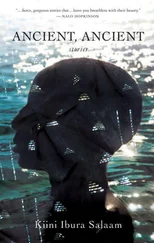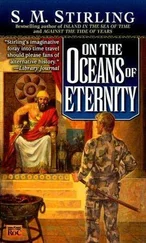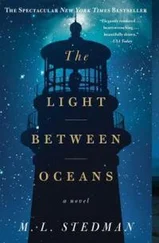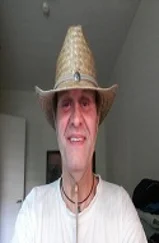Wake, wake! It is time for work, will you children never listen? And the stream too ruined by rain to see her face in any longer. She dialed John Rhodes’ cell phone number.
In the hyper-clear sky hung the moon and Orion in full. A splash of pale light, the swirling disc of their galaxy, the arms of an octopus. She tallied for her brother the stars of all of the constellations, named and unnamed, known and forgotten and not yet charted. The stars don’t know their own names. The constellations can’t see what shape they are. Leah sat in the window of their bedroom and looking out, named them for Jacob. The black dome of the void centered above their house on the corner of the street where thin dry grass juts through cracks in the sidewalk and sun-bleached bottle caps and broken glass from old wrecks rests.
Communion trays ready to be taken to the shut-ins. The broken body and spilled blood. The small white tiles of bread and plastic cups of grape juice. Leah opened the car door, lifted the tray, walked to the house and knocked on the screen. When they were growing up, Leah and Jacob would go with their mother to take communion to the shut-ins. Leah hated it. She felt uncomfortable around the old women. They were all women. She was scared to see them curled in their beds, thin, trapped between bed sheets, mouths open, moaning, eyes unseeing, the smell of urine and bodies and cleaning fluid, the women curling up like a dried leaf, but Mrs. Shepherd took her children with her because they were doing an Important Thing. Jacob would go right up to the women and if they were awake, if they called out to him, called a name of a son in some other state, he would answer and they would reach out and he would take their hand. But Leah would linger by the door and wait. Knobs of spine through a nightgown. A papery voice asking her name.
Leah called the old woman’s name and waited a moment before she walked in. A morning and the moon still clung to life like a crescent cloud. Some things are just for the night. Leah called her name, carrying communion. For how many years did she bring communion to the wrecked rooms? The stale bed? Still when Leah took communion to the church’s shut-in members, she dreaded it for the week leading up to Sunday. But she did it and the old woman in the house she’d come to enjoy being around and Leah would visit her on other days, just to sit and talk, or sit and look out at the evening coming on.
She called out to the old woman and saw the light on in the basement.
After the suit was filed, Leah had a meeting with Judge James Whitehead (retired). The judge had been on the board of directors of the nonprofit since his retirement and had been one of its founders years before. The judge had known Leah for a very long time, since before he was appointed to the bench. When he’d been in private practice, he’d represented the Shepherd family on a number of matters, beginning with defending Mr. Shepherd when he was charged with the assault and battery of a Sunday school teacher.
“Leah,” the judge said as she walked in. She began to say something to defend herself, but he waved his hands emphatically, a gesture the local bar had learned meant You should be quiet now and said, “None of this means a pinch of puppy shit. Their attorney is a moth-eaten gasbag out for a fee, but, listen, we have to get this settled now. I am behind you because I know you and I will go to bat for you, but the board is skittish.” Leah was looking out the window of his office at the Crow Station skyline. On the office stereo, she could hear a Tallis motet. The judge smelled like cough drops. He smiled at her and she felt, for a moment, that it would, in the end, be okay.

Despite the three years between them, Leah and Jacob Shepherd were rippling reflections of one another. Soft round faces and short unruly hair and cheeks quick to turn red when bodies darted and whirled. Their throats wailed the same strong wails when angry and their hearts beat the same rapid beats when winded from their running and when bad, their lips turned into the same red comma. Capering across limestone, slipping down mossy bank, slipping, skittering, spilling down green, smearing green on knees, drawing red, all four knees, both of them capering, they were the same, Jacob only a smaller version of his sister. Refractions split by facets. One in two places, bilocated, capering and splashing and yelping. In public, passing parents tsked at these bad children.
Mrs. Shepherd wanted Leah to grow her hair out, but whenever it began to tickle her neck, Leah would sneak into her parents’ bedroom and take the scissors, or if they were hidden, she would slip into the kitchen and take a butcher knife, and chop chunks of it away, leaving irregular whorls of brown wherever they fell. Her brother didn’t have this problem as no one ever commented on his hair, leaving him to decide how he wanted it, yet he always cut it to match his sister’s hair. “Why do you do this?” Mrs. Shepherd would ask. “You have such lovely hair. You would be so beautiful if you would let it grow out.” She said this as she smacked the girl across the backs of her thighs. Leah raised red, wet eyes, a sore backside, and slithered to her room to sulk and moan. You could have been so beautiful.
Their skin, a map bruised and scratched. Complimentary rivers of red and bays of black. She could see their blue veins under their skin. They looked like letters that she tried to read. Four hazel eyes between the two of them. She would make Jacob sit in the light, eyes wide so she could look into them. She wanted to see how the iris was made. A gray honeycomb in a glass dome. The black bands and the gray iris spiraling around the blackest holes. Light swallowed up. Their eyes looked like the surface of the lake. Eye lashes were bent bare branches. Tears were rain overrunning creek beds.
Constellations of freckles across nose and cheek and the back of necks. When she lay in bed, waning daylight slanting in, he would lean over her and draw his finger across the freckles, connecting them in figures and explaining to her their meaning. You could have been.
The woman said her father was an orthodontist with thick forearms and for her birthday he gave her a leather-bound notebook which she planned to use to write a fantasy story about a strange land of strange animals and strange people, but her parents were yelling and the house was dark and she was downstairs and a door was battering its frame and the moon was too loud in the room. One morning, while her parents were sleeping, she slipped out the door of the house in the gray light of an empty Sunday morning and floated along the street away from there.
The receptionist, a woman who had to kick out one young tenant because she found out that the young tenant had taken some of the receptionist’s pain killers, smiled and nodded.
When Leah came in, the receptionist, an older woman who moved through space as though she’d never not been beautiful, said, “I’m sorry if this is a personal question, but—” then the telephone rang and Leah went to her office and the receptionist, who’d once dated a doctor, decades ago, who never would leave his wife, never asked the question.

“This girl in my church, she had this demon that was in her and it would make her fall down during service and roll and the preacher would lay hands and after a bit she would open her eyes and start to cry. Then after church, we’d walk down to the movies and see whatever was on, or tell our parents that was what we was doing and just sneak out the backdoor and hang out behind the theater with some guys from the county school. The demon never touched her there, but from the start I knew it was a bad idea for her to go with that one guy to the haunted house and try and spend the night there. Like I say, it weren’t haunted, but that’s not the only bad that can happen.”
Читать дальше













